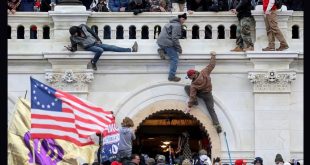 -Editorial
-Editorial
President Donald Trump presided over a day of major diplomatic and economic developments in Southeast Asia, brokering a peace deal between Thailand and Cambodia, signing reciprocal trade agreements with Malaysia and Cambodia, and announcing new frameworks for economic cooperation with Thailand and Vietnam.
The series of agreements, collectively described by U.S. officials as the “Kuala Lumpur Peace Accords and Economic Frameworks,” marked one of the most comprehensive U.S. diplomatic efforts in the region in recent years.
The highlight of the day was the signing of the Kuala Lumpur Peace Accords, a declaration formally ending decades of border tensions between Thailand and Cambodia. The signing ceremony, co-hosted by Trump and Malaysian Prime Minister Anwar Ibrahim, brought together Thai Prime Minister Anutin Charnvirakul and Cambodian Prime Minister Hun Manet for what observers described as a landmark step toward stability in mainland Southeast Asia.
Under the agreement, Thailand and Cambodia committed to establishing border observer teams to monitor demilitarized zones and prevent future skirmishes. In a gesture of goodwill, Thailand also agreed to release 18 Cambodian soldiers detained since July. U.S. officials said the accord was facilitated through months of behind-the-scenes negotiations led by American diplomats and security officials.
Beyond peace efforts, Trump signed a series of trade agreements aimed at expanding U.S. economic influence in the region. The United States and Malaysia finalized a reciprocal trade deal that will significantly open Malaysian markets to U.S. exports. Under the agreement, Malaysia will reduce or eliminate tariffs on nearly all American agricultural and industrial products and address long-standing non-tariff barriers. U.S. vehicles and farm goods will gain preferential access, and American regulatory standards will be recognized, reducing redundant testing and certification requirements.
Trump also announced a parallel deal with Cambodia that will eliminate all tariffs on U.S. goods, granting American exporters full duty-free access to Cambodian markets. The agreement includes provisions to ensure fair treatment of U.S. products and recognition of American oversight standards.
In addition, the United States reached preliminary frameworks with Thailand and Vietnam for future reciprocal trade agreements. These frameworks aim to eliminate or reduce tariff and non-tariff barriers on nearly all categories of U.S. exports, including industrial goods and agricultural products.
The day’s agenda also focused on expanding bilateral relations with Malaysia, one of the United States’ key economic partners in the Indo-Pacific. Trump and Anwar announced what they called “transformative deals” valued at billions of dollars, including up to $3.4 billion annually in Malaysian purchases of U.S. liquefied natural gas and $42.6 million in coal imports. Malaysian companies are also committed to buying $119 million in U.S. telecommunications products and services, 30 Boeing aircraft with an option for 30 more, and an estimated $150 billion in U.S. semiconductors, aerospace components, and data center equipment.
The two leaders also signed a Memorandum of Understanding on Critical Minerals, a move aimed at diversifying global supply chains for resources such as lithium, nickel, and rare earth elements. The agreement is expected to expand cooperation in the exploration, extraction, refinement, and recycling of critical materials essential to clean energy and technology manufacturing.
Another MOU signed between the two governments strengthens cooperation on maritime security and domain awareness in the South China Sea, an area of growing strategic competition. Additionally, Malaysia and the Philippines joined the Artemis Accords, a U.S.-led initiative promoting transparency and peaceful cooperation in space exploration, bringing the total number of signatory nations to 59.
During a bilateral meeting with Cambodian Prime Minister Hun Manet, Trump announced the lifting of the U.S. arms embargo on Cambodia, a move reflecting what officials called Cambodia’s “renewed commitment to peace and security.” The two countries also agreed to resume the Angkor Sentinel joint military exercises, which were last held in 2017. The United States will expand opportunities for Cambodian military officers to study at American institutions such as West Point and the Air Force Academy.
Both sides pledged deeper collaboration to combat transnational crime networks, including narcotics traffickers and online scam operations that U.S. officials say have defrauded Americans of more than $10 billion annually.
Trump also met with Thai Prime Minister Anutin Charnvirakul to discuss expanding U.S.-Thailand defense and economic cooperation. The two governments signed a memorandum to strengthen critical minerals supply chains, encourage partnerships between U.S. and Thai companies, and enhance information-sharing between law enforcement agencies to counter cyber and financial crimes linked to regional scam centers.
The agreements were unveiled on the sidelines of the 13th annual U.S.-ASEAN Summit, where Trump reaffirmed Washington’s commitment to regional stability and economic development.


